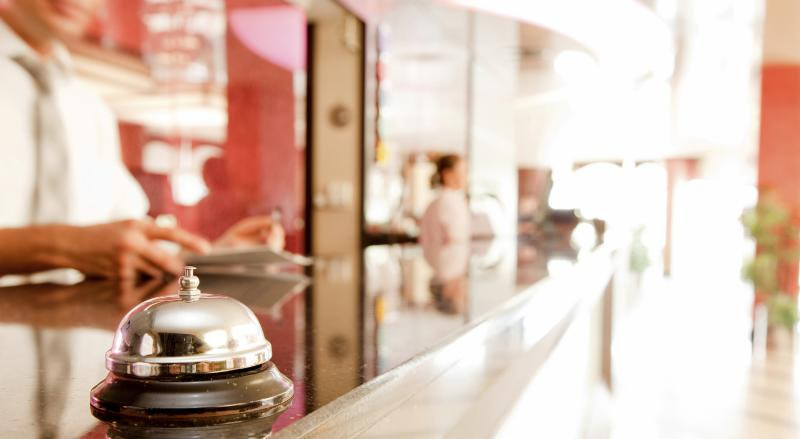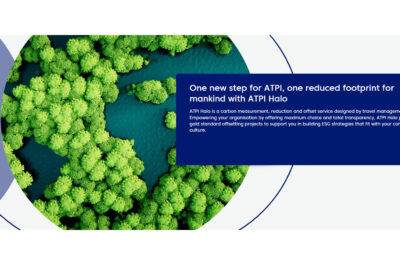During the pandemic, hotels have taken a divergent approach to pricing, depending on their brand and reputation. Five-star hotels have chosen not to engage in a race to the bottom, instead maintaining prices even with significant occupancy challenges. Despite a revenue reduction, five-star hotels have retained staff in order to provide services that justify the higher rates and maintain their prestige.
As the hotel sector continues to ride the wave of uncertainty, 2022 looks to be the year that the industry begins to rebound.
Unsurprisingly, Covid-19 is still significantly impacting business travel and the hotel industry. Here are just some of the pandemic-induced changes to the industry that we expect to see.
Regional differences
Given that responses to the pandemic have been mostly national rather than by global region, recovery has been mixed and felt differently among markets. There are countries such as China and much of Oceania where business travel and hospitality are still negligible given ongoing constraints. While in contrast, much of the United States has returned to normalcy, with minimal travel restrictions. But the size of markets, as well as their make-up, are also important factors in predicting long-term recovery. In the US, inter-state travel has been able to resume to near-normal levels, whereas travel restrictions continue to be enforced in Europe and vary across borders.
However, even in the US, recovery has not been evenly distributed. Hotels in cities that were convention hubs, such as Chicago, have been badly affected as a result of the move to virtual conferences. Conversely, smaller metropolitan cities such as Nashville have seen growth, in part due to more restrictive inoculation requirements in cities like New York.
Changing hotel structures
During the pandemic, hotels have taken a divergent approach to pricing, depending on their brand and reputation. Five-star hotels have chosen not to engage in a race to the bottom, instead maintaining prices even with significant occupancy challenges. Despite a revenue reduction, five-star hotels have retained staff in order to provide services that justify the higher rates and maintain their prestige.
Three and four-star hotels have instead opted to chase the rate and win a larger slice of the relatively small pie of guests. A selection of non-branded hotels have kept prices lower, while hotels that form part of larger investor portfolios have increased prices – driven by financial pressures including shareholder expectations and wage increases. All hotels will increase their rates when travel returns, but predicting when varies significantly by country and hotel category.
Increasingly important are changes to loyalty programmes. For the global chains, creating cradle-to-grave loyalty throughout the brand tree is the mission. Marriott, for example, has 30 hospitality brands with varying rates, but a loyalty system that is transferrable across all. During the pandemic, hotels have attempted to ensure long-term customer retention by pitching more cost-effective brands.
Travellers earn points redeemable with premium brands within the company’s portfolio. By temporarily retaining customers with lower revenue brands, they hope to shift them to premium brands in the future.
However, those whose travel was essential throughout the pandemic have enjoyed greater flexibility, given the emphasis on employee wellbeing. Travel budgets sat below duty of care in terms of importance, and travellers have been occupying more luxurious accommodations that previously sat outside of policy. This is likely to continue until rates start to exceed any rate cap policies currently in place.
Some industries unlikely to return to corporate travel
Some calculations estimate that 25 per cent of internal travel is at risk, half of which is likely to be a permanent casualty, with an even greater proportion being at risk of continued significant reductions. Trips that do occur are likely to be less frequent but for longer durations and combined to be multi-purpose. While video calls can replace some functional meetings, industries recognise that human-to-human interaction is essential to building and maintaining cultures and cementing new partnerships.
Travel for employees in areas such as sales is likely to return to near-normal levels this year. Where some functional internal travel will be reduced, some meetings are not adequately substituted with virtual alternatives. The pandemic has reinforced what is essential travel, and ensured that face-to-face meetings are efficient, productive and above all, necessary.
Sustainability
Given the lack of consistent global standards, it has been difficult to measure the sustainability of a hotel. With increasing regulation and government contracts specifying the need for companies to accurately report carbon data, there is growing pressure on the industry to develop a universal framework. While some hotels are ahead of the curve in this respect, there is still work to be done. A good TMC partner can also support with a recommended approach to reporting.
The hotel experience
The overall hotel operation and experience is expected to remain impacted. Hygiene standards that are affordable and reasonable are likely to stay with visual reassurances such as face coverings and hand sanitising stations remaining. Services such as daily laundry have become optional extras, while simultaneously supporting hotels in meeting sustainability standards and reducing costs. There may also be a reduced food and beverage offering. However, it remains clear that the hospitality industry is not the hospital industry and although hygiene and safety are paramount, the experience is what guests pay for. Hotels should be cautious to find a balance between taking reasonable precautions to ensure the wellbeing of guests, whilst avoiding undue Covid anxiety among guests.
As the hotel sector navigates the constant twists and turns, restrictions will vary around the world for some time and the recovery will be felt differently in separate regions – with some areas of corporate travel unlikely to return at all.
Alwyn Burrage is Global Hotel Programme Director at the ATPI Group. Alwyn has over 35 years + senior leadership experience, with a proven track record in leading, developing and transforming teams across multiple disciplines in customer service led businesses with a demonstrated history of working in the Corporate travel industry. Skilled in Sales, Account Management, Supplier Negotiation, Consulting, Behaviour change, Procurement, Operations Management, MICE, Corporate Travel, Hospitality Management, and Customer Service.











































































































































































